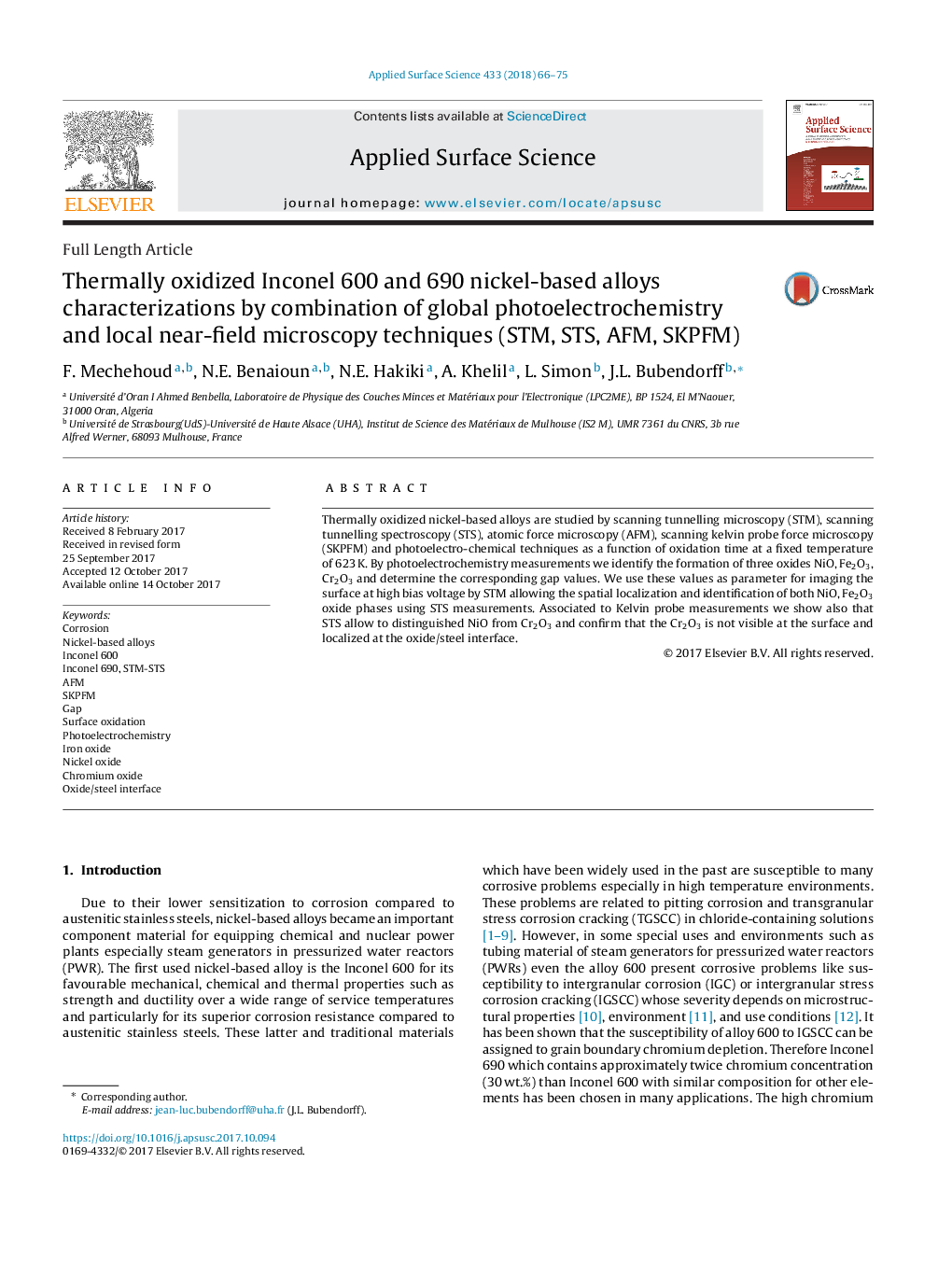| Article ID | Journal | Published Year | Pages | File Type |
|---|---|---|---|---|
| 7836187 | Applied Surface Science | 2018 | 10 Pages |
Abstract
Thermally oxidized nickel-based alloys are studied by scanning tunnelling microscopy (STM), scanning tunnelling spectroscopy (STS), atomic force microscopy (AFM), scanning kelvin probe force microscopy (SKPFM) and photoelectro-chemical techniques as a function of oxidation time at a fixed temperature of 623Â K. By photoelectrochemistry measurements we identify the formation of three oxides NiO, Fe2O3, Cr2O3 and determine the corresponding gap values. We use these values as parameter for imaging the surface at high bias voltage by STM allowing the spatial localization and identification of both NiO, Fe2O3 oxide phases using STS measurements. Associated to Kelvin probe measurements we show also that STS allow to distinguished NiO from Cr2O3 and confirm that the Cr2O3 is not visible at the surface and localized at the oxide/steel interface.
Keywords
Related Topics
Physical Sciences and Engineering
Chemistry
Physical and Theoretical Chemistry
Authors
F. Mechehoud, N.E. Benaioun, N.E. Hakiki, A. Khelil, L. Simon, J.L. Bubendorff,
